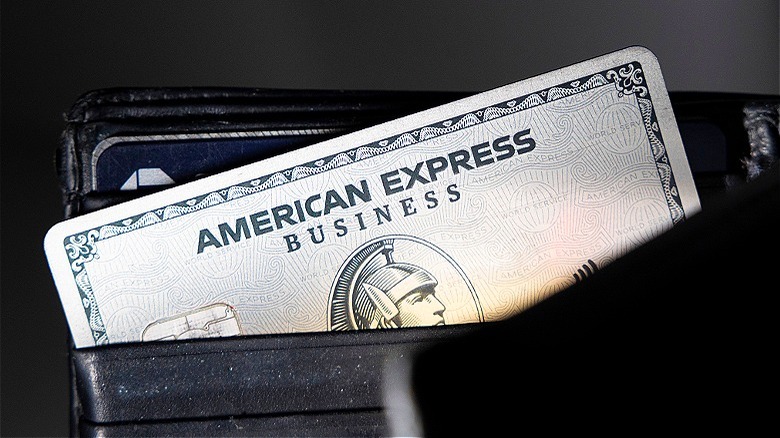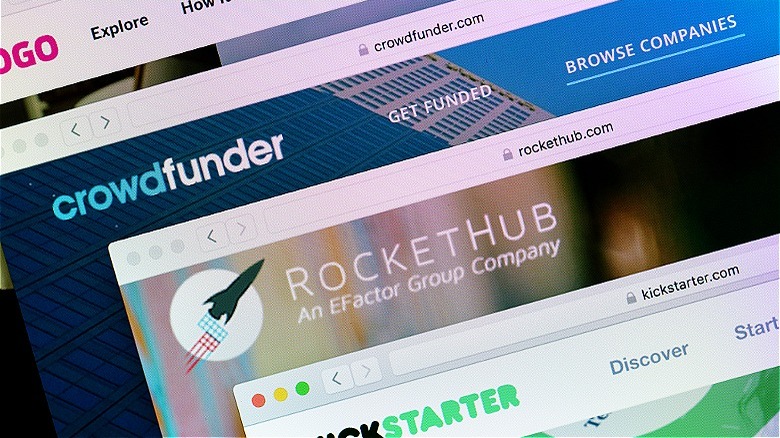How To Get A Startup Business Loan With No Money
In spite of their name, small businesses are anything but small when viewed in aggregate. As of March 2023, there were more than 33 million small businesses in America, which are credited with creating about 63% of all new jobs between 1995 to 2021, per the U.S. Chamber of Commerce.
The reasons to start a small business are many. To begin, small businesses allow entrepreneurs to follow their passions and be motivated in a way that might not happen when working for someone else. Also, small business owners can tailor their schedules to fit their lifestyles. Though the hours required for a successful small business can be long, you'll potentially be able to work from home, and select hours that allow for more family interaction. Plus, all that hard work will go toward your bottom line, not some faceless corporation. Finally, small business owners can take advantage of various tax benefits and other financial incentives — though, you'll want to work with a qualified accountant to take maximum, yet lawful, advantage.
Okay, so you, too, have a great idea for a product or service and you're simultaneously ready to exit the corporate treadmill to join the ranks of small business owners. The only problem is that with the high cost of everyday life, your checking or savings account is looking a little, well, empty. Yet, don't let that stop you from pursuing your dream of starting your own business as Money Digest can show you how to get a startup business loan with no money.
Apply for a microloan
If your startup has little or no revenue yet, it may be difficult to qualify for a traditional loan — even one backed by the Small Business Administration. If it's possible to bootstrap your new company on a shoestring budget at the very beginning rather than borrowing funds, that may be your best strategy because once your business's financials are stronger, it'll be easier and likely less expensive to secure additional funding for growth in the form of a loan.
However, that's not always a realistic scenario because some small businesses need capital from the onset. In that case, startup owners can check out microloans. Like the name implies, microloans are usually for amounts of $50,000 or less (the average microloan is $13,000). Although the loans aren't directly issued by the SBA, the organization is still involved via a network of intermediaries. As the Small Business Administration explains, "SBA provides funds to specially designated intermediary lenders, which are nonprofit community-based organizations with experience in lending, as well as management and technical assistance ... These intermediaries administer the Microloan program for eligible borrowers."
Microloans may have more lax requirements to qualify than conventional loans, but will likely still require some form of collateral and a personal guarantee from the small business owner. The loans — which have a maximum term of six years — typically carry an interest rate of 8% to 13%.
Use a credit card
Opening a new credit card to fund the expenses of a fledging business can be a successful strategy for borrowers struggling to secure conventional financing. Granted, some personal finance experts highly advise against carrying credit card balance(s) as their interest rates are among the highest of any loan type — frequently over 20%. That said, many credit cards geared toward small businesses specifically have introductory offers that include promotional periods during which time the APR (annual percentage rate) is as low as 0% for up to 12 months after opening the account.
Of course, this approach to financing a small business with no money isn't without risk. While the intent is to pay off any accumulated card balance before the low- or no-interest promotional period ends, struggling sales or unexpected costs could mean your business won't be able to pay down that balance in time. In that case, you'd either face an outrageously high-interest rate or else transfer the balance to a new credit card with a fresh promotional rate offer.
On a positive note, business credit cards are typically easy to get approved for since the approval is based on the personal credit history and annual income of the business owner, not the business itself — provided the business owner has a respectable personal credit score, of course. Additionally, many business credit cards reward both initial and ongoing spending with cash-back rewards or points that can be redeemed for hotels, airfare, etc. Those little-known credit card perks can add up quickly for businesses with considerable spending habits.
Ask friends or family to invest
Do you know what Walmart, GoPro, and Amazon all have in common? Aside from being success stories, these businesses are among the many new businesses that received a startup loan from family members. Indeed, receiving some startup capital from friends or family is a popular method to fund small businesses in their earliest stages. There are no forms or credit-check requirements and the terms may be more flexible and affordable than those offered by conventional lenders.
Money Digest has previously cautioned about the pitfalls of lending money to family, but using the funds to start a business is a more admirable purpose than, say, for a relative who simply overspends regularly and needs a bailout. Still, to avoid any disappointment and/or disagreements later, create a comprehensive business plan to share with potential friends or family who are considering investing. Also make sure they realize that success isn't a sure thing and document all investments and terms in writing. Basically, don't let your level of professionalism lapse just because your creditor is a family member. Keep them updated about the health of the business, good or bad.
Finally, if a friend or family member isn't comfortable making the loan — or doesn't have the cash — they might still consider co-signing for a loan, using their good credit or assets if yours are lacking. However, given that a co-signer is ultimately responsible for the repayment of a loan in the event the borrower defaults, follow many of the same recommendations noted above as if the co-signer was lending you the money.
Start a crowdfunding campaign
Crowdfunding sites, such as Kickstarter, Indiegogo, and StartEngine, can be a great way to start a small business if you don't have any initial money. To date, more than $34 billion has been raised worldwide using crowdfunding platforms, though some venues are better than others for businesses and investing as opposed to raising money for charities and other causes. Further, an added bonus of crowdfunding your small business is that the campaign itself may create a small buzz around the product or service, driving publicity.
For the uninitiated, crowdfunding in a business sense means gathering up startup capital via many small contributions online. Although money is occasionally donated, contributors more often receive something in return, such as a small ownership stake in the company or other rewards. Those other rewards can be something small, like a logo sticker or other promotional merchandise, on up to an early-release version of the product or service being marketed by the small business.
You'll want to read the fine print before fully committing to any crowdfunding campaign, though. Expect to pay fees to the platform itself and possibly additional fees for processing payments. For example, Kickstarter charges a 5% fee for using the site, plus an additional 3% payment processing fee to receive investor funds. Also verify the crowdsourced funds will be available even if the full target amount isn't reached. Finally, certain debt-based crowdfunding platforms, like Kiva, expect that the recipient of the funds will eventually pay back investors.
Seek venture capital
Fans of the ABC show "Shark Tank" are already familiar with the concept of venture capital. The Sharks on the show are all acting in the role of venture capitalists, who provide much needed startup funding for businesses in exchange for an equity stake in the business. Not every type of business is attractive to venture capitalists, however. These investors typically get involved with companies that have the potential for rapid growth, with the eventual end goal being the issuance of publicly traded stock via an IPO or the sale of the business at a premium to a larger company.
Since venture capitalists realize the money they invest wouldn't typically be available to businesses through conventional loans due to a variety of risk factors, they ask for a fairly large ownership stake in return. However, it's not unheard of to accept a revenue stream instead, such as a royalty payment for every unit of product sold. Besides raising much-needed seed capital, there are other benefits to working with a venture capitalist. For one, they're typically well-versed in business and can provide valuable advice, as well as access to a network of professionals to help a small business succeed.





